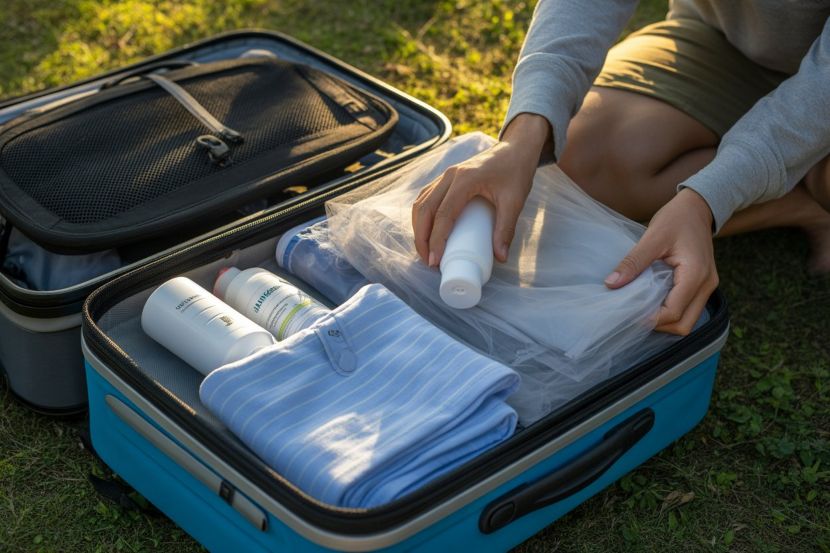Published on
September 9, 2025

Recent outbreaks of chikungunya virus have been reported in several countries, including Bangladesh, Kenya, Madagascar, Somalia, and Sri Lanka. The virus, spread primarily by mosquitoes, poses a health risk to both locals and international travelers. As these outbreaks continue to unfold, understanding how to protect yourself from this disease is crucial for safe travel.
What is Chikungunya?
Chikungunya is a viral illness transmitted to humans through the bite of infected mosquitoes. The mosquitoes responsible for spreading chikungunya belong to the Aedes genus, mainly Aedes aegypti and Aedes albopictus. Infected individuals often experience fever, severe joint pain, muscle pain, joint swelling, and a characteristic rash. In some cases, these symptoms can persist for weeks, leaving long-term effects.
How Can You Protect Yourself from Chikungunya?
Prevention is key when traveling to regions experiencing chikungunya outbreaks. Here are some essential tips for staying safe:
- Use Insect Repellent: Apply insect repellents containing DEET or other recommended active ingredients to your skin and clothing. This is the most effective way to protect yourself from mosquito bites.
- Wear Protective Clothing: Choose long-sleeved shirts and pants to minimize skin exposure to mosquitoes. Opt for light-coloured clothes, as they are less attractive to mosquitoes.
- Stay in Air-Conditioned or Screened Areas: Whenever possible, stay in air-conditioned accommodations or places with screens on windows and doors to keep mosquitoes at bay.
- Use Mosquito Nets: If you’re staying in a place without air conditioning, sleeping under a mosquito net can offer added protection.
Why Is Vaccination Important for Travelers?
Chikungunya disease is prevalent in lots of countries and if you are planning on going there, you should consider vaccination for it as well as any other diseases which might be around there. Currently, there is no specific or targeted vaccination for chikungunya, so you will have to pay very close attention to any symptoms and make sure to talk to a healthcare provider a few weeks before your travel.
Travel Advisory for Pregnant Women
Pregnant women should reconsider travel to regions with ongoing chikungunya outbreaks, particularly if they are close to their delivery date. The virus can be transmitted from an infected mother to her baby during childbirth, either via mosquito bites or in rare cases, vertically during delivery. Newborns infected in this manner are at risk of severe illness and possible long-term complications.
Healthcare specialists recommend this group of travelers to analyze the benefits and risks of getting vaccinated versus staying with personal protective measures to lower the chances of getting the chikungunya virus.
What Should You Do if You Develop Symptoms?
If you experience symptoms of chikungunya during or after your trip, seek immediate medical attention. Symptoms may include:
- Fever
- Severe joint pain (especially in the wrists, knees, and ankles)
- Headache
- Muscle pain
- Joint swelling
- Rash
Although the illness is rarely fatal, early treatment can help manage symptoms and reduce discomfort. Healthcare providers may offer pain relief medications to manage joint pain and swelling.
For Clinicians: Important Guidance
Healthcare professionals are advised to stay up-to-date on chikungunya vaccination protocols and the latest guidelines for travelers. For individuals planning to visit affected regions, clinicians should review the traveler’s health status, vaccination history, and risk factors associated with their destination.
Vaccination risks and benefits must be addressed with each traveler based on the travel destination, activities planned, and duration of stay. Information on chikungunya and its preventive methods should be given.
Final Thoughts: Stay Informed and Safe
As outbreaks of chikungunya continue to affect Bangladesh, Kenya, Madagascar, Somalia, and Sri Lanka, taking the necessary precautions is essential for preventing infection. By protecting yourself from mosquito bites and staying informed on the latest health advisories, you can enjoy your travels while reducing the risk of illness. Pregnant travelers, in particular, should exercise caution and consult medical professionals before making travel plans.

